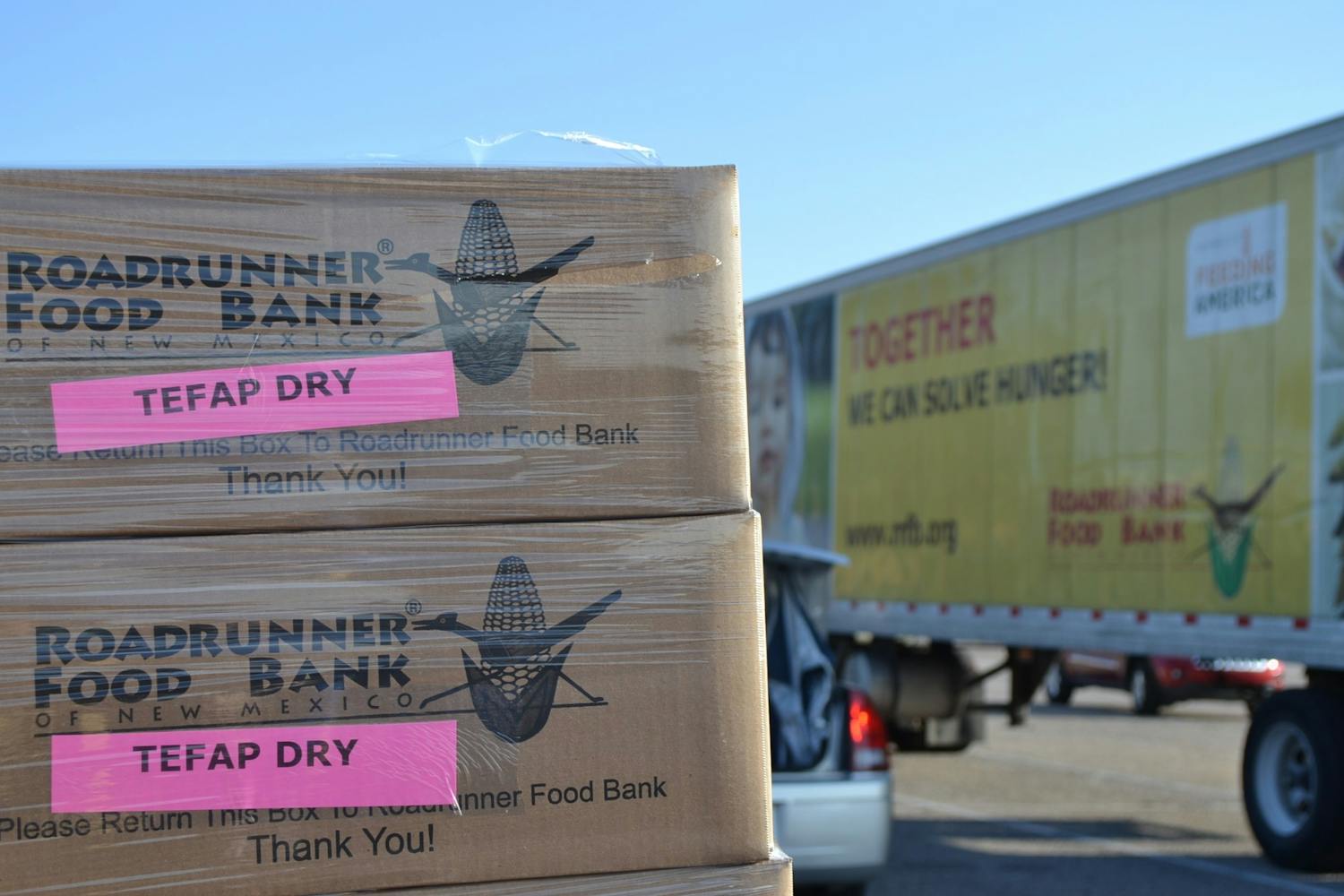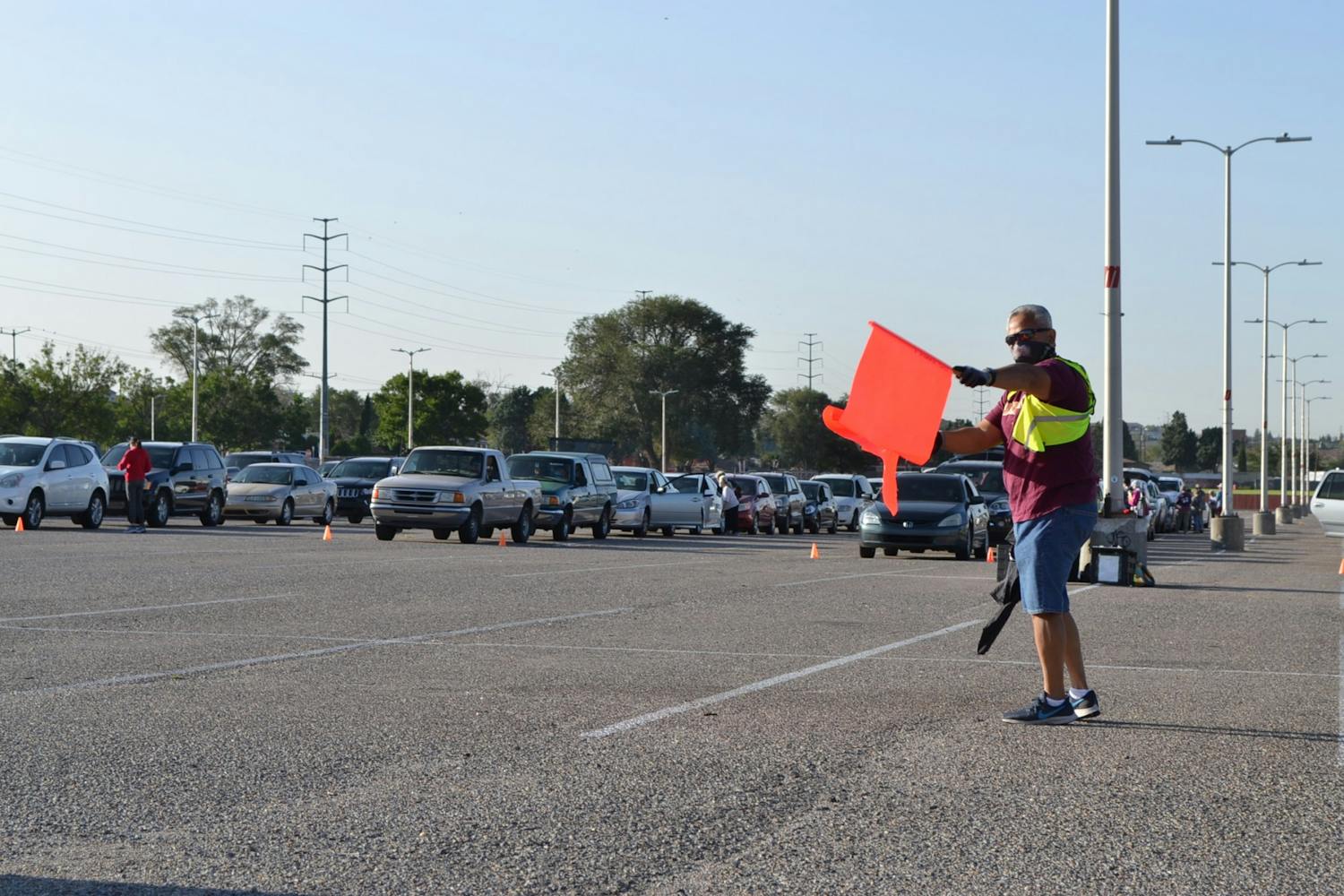In April — just one month into the COVID-19 stay-at-home order — 32% of UNM students reported experiencing food insecurity and almost 42% were unsure about their housing, according to a recent study conducted by the University of New Mexico’s Basic Needs Team.
The team — comprised of researchers from a variety of departments and offices on campus — examined the rates of food and housing insecurity and how they are patterned across different demographic groups at UNM.
New Mexico households have the highest rate (16.8%) of food insecurity across the country, according to the study.
This means that as of 2017, one in six individuals and one in four children in New Mexico were living in homes “without consistent access to adequate food for everyone to live healthy, active lives,” according to the New Mexico Department of Health’s Indicator-Based Information System (NM-IBIS).
Poverty and income are the primary factors in food and housing insecurity, according to the study’s co-principal investigator Dr. Marygold Walsh-Dilley, and New Mexico has higher rates of poverty and lower incomes on average compared to the rest of the country.
The researchers wanted to know “to what extent there is food and housing insecurity among UNM’s students and who is affected most by the insecurity,” Walsh-Dilley said.
Noah Dowling-Lujan, a UNM student who has experienced homelessness, said that the UNM administration’s lack of action is the reason why many students aren’t aware of this issue.
“It’s very normal to not be aware about what’s going on. I think that’s intentional. They don’t want to advertise these issues — UNM especially,” Dowling-Lujan said. “They always try to minimize every issue the school has ever had because they’re all about marketing and not about flourishing or social wellbeing.”
The study also looked at the stigma and shame that often accompany food and housing insecurity.
According to Walsh-Dilley, if students were to be asked if they’d been homeless in the past 12 months, they’d likely be unwilling to answer “yes” because of the prevailing stigma surrounding homelessness.
“A lot of students have a lot of notions about homeless people that are very wrong, and they are just fundamentally misunderstanding the issue,” Dowling-Lujan said.
Dr. Sarita Cargas, the principal investigator for the study, said that it’s important for students to know that food and housing insecurity are systemic issues, not personal failings.
Get content from The Daily Lobo delivered to your inbox
“There’s harder things to fix like systemic inequality,” Cargas said. “We need students to know this is not their fault. These are system society problems. All of us should have a hand in addressing it. We need to treat it like a systemic issue and not something to be embarrassed about.”
The housing insecurity survey included questions like: Did you have a rent increase? Was there an occasion where you didn’t pay the full amount of your housing utilities? Did you live with others beyond the expected capacity of the house? Did you leave your household because you felt unsafe?
According to the study, LGBTQ students (mostly transgender and genderfluid students) are especially vulnerable to the insecurities outlined in those questions, and those insecurities can detrimentally affect their education.
“We know that certain demographic groups are less likely to be academically successful and are more likely to drop out, and we think basic needs food and housing insecurity is part of the story,” Walsh-Dilley. “If we could address food and housing insecurity, then maybe we can contribute to making educational access more equitable across these different groups.”
The researchers found that food insecure students had a lower GPA with an average of 3.46 compared to food secure students who had an average GPA of 3.65. This data suggests that basic needs insecurity negatively impacts students’ educational outcomes and may affect their ability to get through college successfully.
“It’s not really fair for students to be contending with housing or food insecurity when they’re also trying to cope with the challenge of going to school and doing well. We want students to reach their full potential,” Walsh-Dilley said.
The Basic Needs Insecurity at UNM 2020 Research Report is the first report in an ongoing investigation. Since the study was performed during the COVID-19 outbreak, the impact of the pandemic on both food and housing insecurity is unknown.
“This is a real limitation on what we’re doing,” Walsh-Dilley said.
The group of researchers will follow up on their findings with focus groups in the fall 2020 semester, and they hope to conduct another survey in 2021.
“It’s nowhere near done,” Cargas said.
While the UNM Basic Needs project has received enthusiastic responses, raising funds to complete the investigation has been the biggest challenge for the team of researchers.
According to Cargas, the team would also like to collaborate with other colleges and universities in New Mexico as a next step for their investigation.
The team has already applied for a major grant, and colleges such as New Mexico State University, Santa Fe Community College, Northern New Mexico University and CNM have said they would like to participate in the next round of research. UNM’s other branches will also likely be included.
The ultimate goal of the study, as stated in the report, is to “improve the food and housing security of students at the University of New Mexico through the combined activities of research, data collection and advocacy,” Walsh-Dilley said.
“It shows there’s so much possibility of addressing this in the future. It’s not just a hopeless social problem, and there are meaningful solutions out there,” Dowling-Lujan said.
Annya Loya is a freelance reporter at the Daily Lobo. She can be contacted at news@dailylobo.com or on Twitter @annyaloyadl







